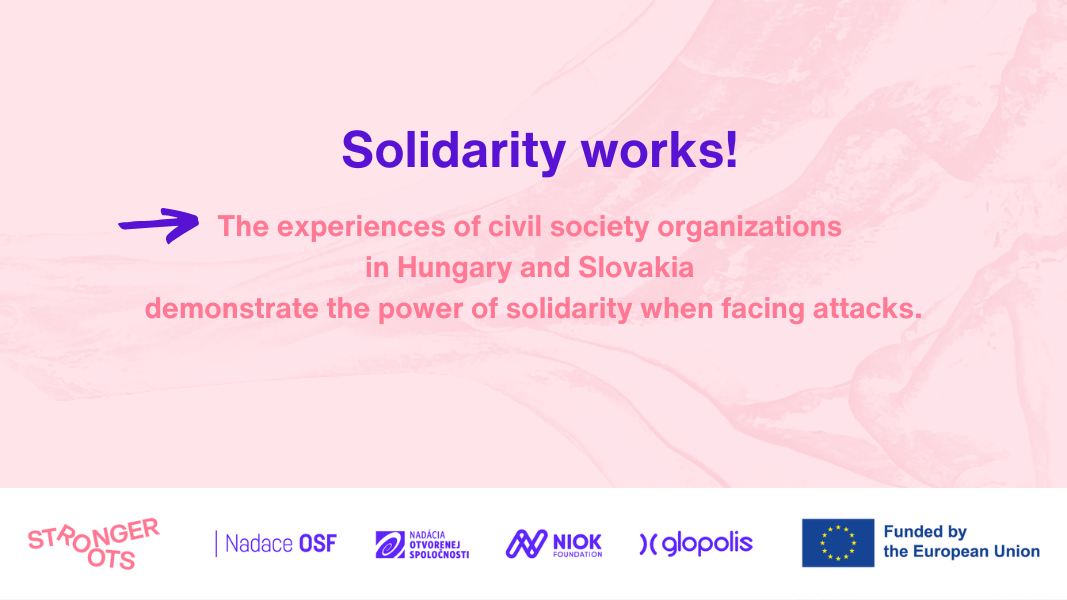The experiences of civil society organizations in Hungary and Slovakia demonstrate the power of solidarity when facing attacks. How can the civic sector engage in public policy debates and continue defending human rights in an increasingly hostile environment? This was the key question for our online discussion on June 11, 2025.

A strong, diverse, and free civil society is one of the indispensable pillars of democracy. Civil society organizations (CSOs) bring expertise and data to the public policy debate, fight corruption, and defend human rights, inclusion, and transparency.
However, in many countries in Europe and its neighbourhood, the civic sector faces smear campaigns, unprecedented attacks, and intensified efforts to restrict civic freedoms. Authoritarian ideologies are gaining ground in the public space and in election results. The spread of restrictions inspired by Russia's "foreign agents" law is one of the main signs of the erosion of democracy and the rule of law.
Together with Márta Pardavi from the Hungarian Helsinki Committee, Peter Čuroš from the Slovak organization VIA IURIS, and Ivana Rosenzweigová from the European Center for Not-for-Profit Law (ECNL), we discussed how to further strengthen the voice of the civic sector in an environment where the government labels it a "public enemy."
Building coalitions and alliances across civil society organizations and other sectors, because together our voice is stronger.
Values-based communication. Organizations facing disinformation campaigns must avoid repeating defamatory labels in their efforts to refute them. Instead, they should focus on positive communication of the values that they stand for. In Hungary we can see that even after years of hostile disinformation campaigns by the government, support for civil society organizations among the Hungarian public has not been broken.
Sharing experiences and identifying risks early on. Cross-border knowledge exchange between affected organizations helps better prepare for restrictive measures, anticipate possible government actions, and mitigate threats.
International solidarity among CSOs. As we heard during the debate: "Thanks to international solidarity, we have much more resilience and energy to continue our work."
We could feel the power of solidarity also during the events of recent weeks. More than 320 civil society organizations from various countries have joined the call to support civil society in Hungary in response to the new draft of the Hungarian version of the “foreign agents” law. The vote on the law, which was supposed to take place in the Hungarian parliament on the very days of our online debate, was postponed until the fall.
You can find further strategies for strengthening the CSOs resilience in this summary by Márta Pardavi.
When the space for free and meaningful dialogue on public decision-making disappears in individual states, it is all the more important to know what participatory tools are available at the EU level. Take a look at the handbooks by the European Center for Not-for-Profit Law (ECNL) to better navigate the available tools for defending the civic space in the European Union:
The European Commission has included the creation of an EU strategy to support, protect and empower civil society in its 2025 work program. This landmark decision is the result of many years of work by CSOs across the EU.
Civil society organizations can now participate in public consultations and influence the shape of the strategy.
You can find more inspiring tips and useful resources in this document in English.
The event was organized by Glopolis as part of the Stronger Roots Program. The program is funded by the European Union and implemented by a consortium composed of Glopolis and the Open Society Fund Prague in Czechia, the Open Society Foundation Bratislava in Slovakia, and the NIOK Foundation in Hungary.

